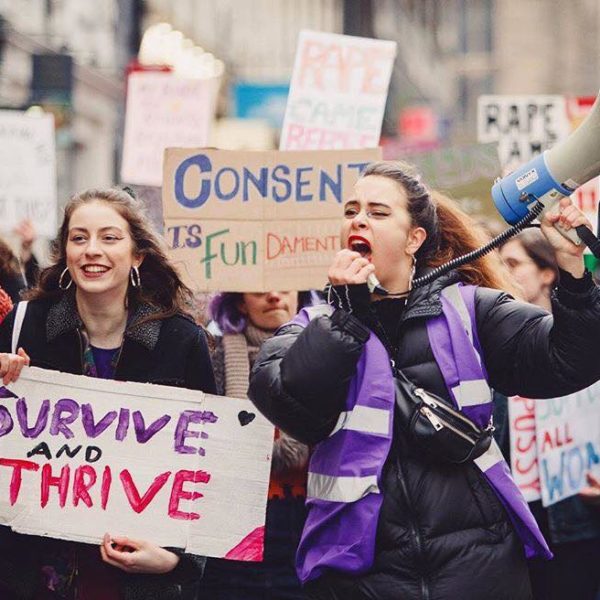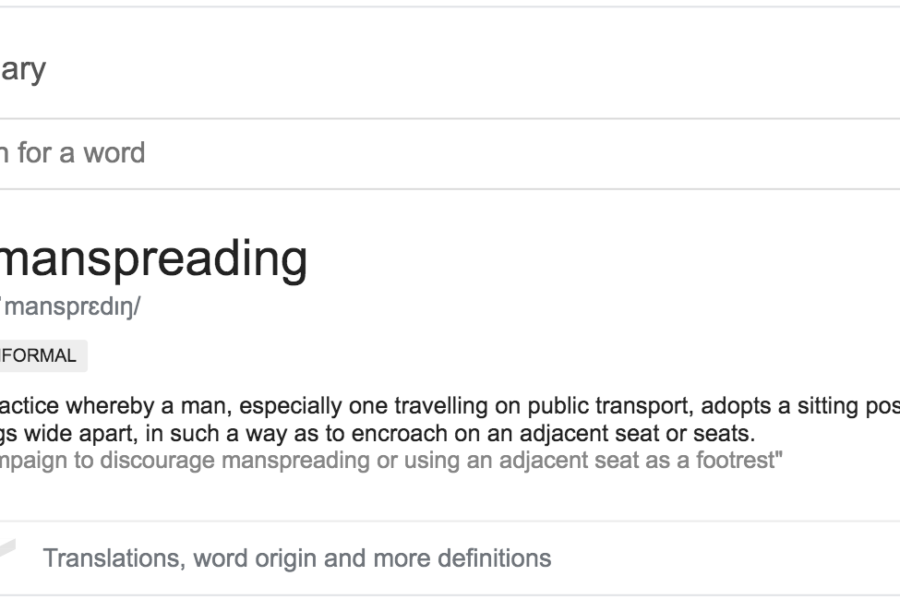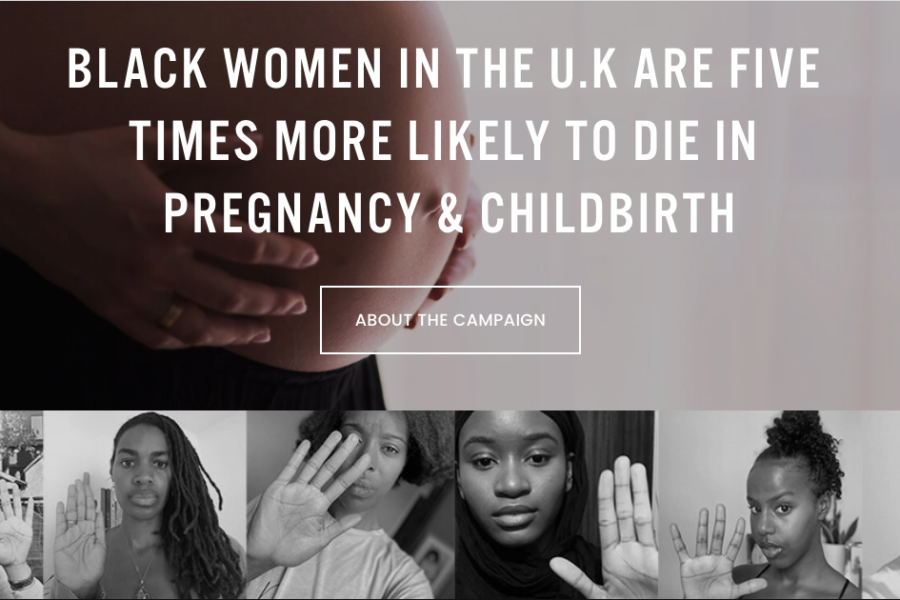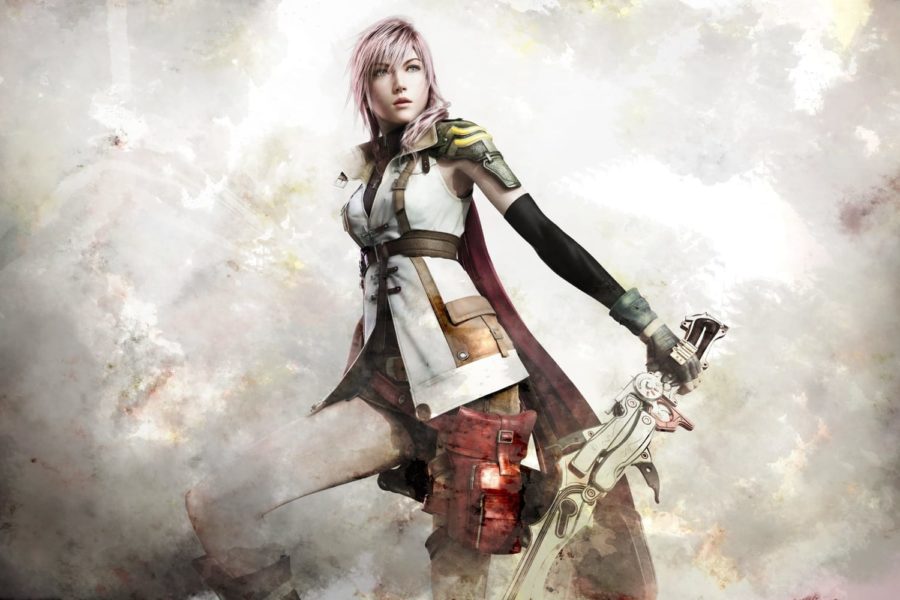Rosie, a second year student and the current LGBT+ Officer at Edinburgh University talks about the process of writing an open letter against the horrifying misconduct of a university gym manager…

An interview with Rosie Taylor
CW: *Rape/ Sexual assault*
It seems to be an increasingly rare occasion that an inappropriate or dangerous comment gets reprimanded. So when complaints were made against Senior instructor and gym manager, Ross Brain, at the beginning of the year for his horrifying suggestion over WhatsApp that a woman who failed to show up for class should be raped as punishment, they were largely kept quiet. But this changed in April when the messages were made public by the Edinburgh Evening News. After seeing the news, Rosie, a second year student and current LGBT+ Officer, reached out to a few friends within the University to ask about courses of action. An open letter to the University was drawn up, and circulated online. The letter garnered significant attention, amassing well over a thousand signatures from the student body, who claimed they felt unsafe due to Mr Brain’s comment and urged the university to act upon the sentiment expressed in their NoExcuse campaign. As a result Mr Brain was dismissed as gym manager. We sat down with Rosie to talk about the process of writing the letter and the reactions to it, among many other things.
Introduce your wonderful self
I’m a second year studying Biology at the University of Edinburgh. I grew up down South with strong principles of equality and liberal politics from my Dad, but coming to University was a stepping stone for me in discovering who I am, as a Queer, disabled person and as a feminist. It has helped me accept and love my identity, and realise the politics that are intrinsic to it. The communities I have access to here have also taught me about accountability, and how to examine my own privilege. I’m now the Students’ Association LGBT+ officer after I was elected in March. During most of my first year, I felt totally disconnected and isolated from my life and my loved ones – I couldn’t find a space to express myself in, or a way to understand and articulate who I was and how I felt. For the past year, I’ve been doing a lot of mental health advocacy, as a founder of WellComm at Kings (the STEM campus at Edinburgh University), and speaking out about issues that disabled and LGBT+ students face each day.
What was your interaction with the University like throughout the process of writing the open letter?
Firstly, none of this could have happened without the amazing group of students and staff, including elected Officers, who really mobilised around the action.
The University’s communication with us was pretty minimal, and all by email. We weren’t, at any point, invited to have a dialogue or to meet with them. We received and circulated responses from Gavin Douglas and the principal, although we made clear that once again putting this labour on us as students, to communicate the failures in dealing with the situation, was inappropriate. We also shared communications we received or were shown, from ‘Sport and Exercise’ to their members and staff. These were contradictory and mostly fell into a rhetoric of ‘this has been handled, there has been consequences, don’t talk to anyone about it’.
That being said, more recently the University has been receptive to change: Kai has just wrapped up their term by getting the higher-ups to agree that our University will have a separate policy to deal with sexual misconduct, keeping students and staff safer. This is something they’ve been in talks about for a long time, so it is sad that it took this incident and the frenzy of attention that followed it for the University to take it seriously.
Our interaction was mainly with the Students’ Association (SA), who helped myself and Ellen Blunsdon – the new Disabled Students’ Officer – hugely. The SA gets a lot of stick: I think that most students don’t understand its role and the support it can offer. The University as an institution plays this to its advantage: cashing in on positive actions and progress pushed forward by the student representatives or SA staff, even if the University has been resistant to these changes at several levels. Kai and staff at the SA helped us clarify our aims, go over the legalities and checked in to see how we were coping with the media attention.
Did you feel like the University cared about the morality / human impact of the situation?
The University of Edinburgh is an educational institution but it also exists to make money. I felt that responses were engineered to appear to pay attention, but also to not burn any bridges. That being said, the response from Gavin Douglas was really encouraging; it went along the lines of ‘we can learn from this, we are sorry’. That message was good.
However, the Principal’s response when emailed by a student prior to the open letter, responded along the lines of ‘if this was a joke, which I believe it was’. That email is available online after we posted it. That response was totally ridiculous, minimising the situation and trying to invalidate the concerns the student had.
Being so large, there are always going to be inconsistencies between the responses from different University departments. There are over 40 thousand students and a huge amount of staff. Amidst formality the human impact is sometimes lost. The human impact is that, for survivors who use these facilities and/or have to read about this in the press, it can be really damaging. The nature of the University’s structure means that it ends up moving from the personal (how is this affecting individuals) to more of a systematic approach, which can feel cold and dehumanising. This year Kai worked to secure funding for sexual violence Liaison Officers, a move that will centre communication and care.
What compelled you to do something?
I saw the article in the Edinburgh Evening News and messaged Ellen, saying how disgusting this was and that we had to do something. There were exams coming up, we were both really busy, but this was about a real person: a woman was being talked about, was maybe even reading the article and questioning whether it was her that Brain was threatening. It also shocked me because I saw him at Pleasance Gym all the time. I imagined how I would feel if I had missed a gym class in January and thought he could be talking about me. I would feel so alone and humiliated and scared. I thought that’s not right. He shouldn’t be working there.
We thought we can’t not do something, especially since we have both been so outspoken within the University. The burden of holding the staff accountable and making the University mean it when they say #noexcuse shouldn’t have had to fall to students. But more, it shouldn’t have to fall to survivors of sexual assault to confront these injustices. As somebody who isn’t a survivor, I have the opportunity to speak out, and engage in the conversations and labour that might be hugely triggering for someone who has experienced sexual violence.
The media’s role in the sharing of the open letter
I was very conscious that the media coverage (even with content warnings) meant that people’s timelines were choc-a-block with potentially triggering material. It was hard weighing that against the need to change things long-term, I didn’t feel comfortable with that conflict but I couldn’t see another way.
It was difficult because a lot of the media’s attention was very focused on him as a person: pictures of him, what he does, his instagram. I wanted to be very careful in stressing that it’s not about him, not about one specific person, it’s a systemic issue.
I understand that there is a lot of complex legality around the disciplinary process, but not firing him makes his actions seem acceptable, even condones them if he sits on the payroll. That’s why it first hit news: staff in Sport and Exercise spoke out because they felt ignored and unsafe.
What has the student response been to you?
It has been mixed, which is to be expected.There has been overwhelming support; over 1000 people signed the open letter. It has mostly been people inboxing us, thanking us, saying that they can’t believe this was going on.
Some people were horrific. The issue is that you can take that 1% online that’s crap, that adds abusive comments and expresses total disregard for people’s wellbeing, and magnify it in your head. When the open letter published we were watching people post horrible things on the google docs, constantly policing and getting rid of it. The trolling had no theme or argument. It was just people anonymously editing and adding to the signatures names of school shooters, terrorists, people in prison or Pornographic images. My friendship circle is very liberal and so I am normally very shielded from these kinds of attitudes; it’s really shocking to see that it still exists.
The student response is often fragmented. People like to say when somethings not right, but don’t often know what constructive steps to take. That’s why we had clear demands and laid it out in the way we did. Myself, Ellen, Martha and others were lucky to have the knowledge of how to do that, and have help from people with more experience. I initially messaged Kai O’Doherty, who was VP of Welfare and Genna, who leads campaigns, at the SA.
Ellen and I went in and sat down with Genna and she basically said ‘do you want him to be fired’ and we said ‘yes’. It went from there.
Talk to us about your experiences and discussions related to equality at the University.
Where I come from down South was quite conservative. Growing up and doing A levels I had friends with the same principles as me, but that was definitely us in the minority. Coming here has made me realise that these ideas aren’t that radical, they are about basic rights and respect.
I live with mental health conditions, and I had a really bad time with my mental health on my year out, like a real downward spiral that I saw no way out of, and that I felt so alone in. I kept waiting for it to stop, to be more like my friends, to feel better, to not feel like I was broken. When I came to University I realised that the alienation I felt was really common, but so often didn’t get talked about. A lot of the loneliness was related to being a woman, being a feminist, queer and being disabled. Those things are a really big intersection in my life. Finding people who were openly talking about their experiences and opinions was so liberating, and meeting people who understood what disability was helped me to feel less removed.
As well as being the LGBT+ officer and founding WellComm, I also sit on the equality and diversity committee and am doing an internship in the summer looking at Athena Swan strategies. A massive thing this year for me has been engaging with queer dialogue and looking at my identity as a woman and a queer person. Living in Edinburgh with all the transphobic rhetoric going on has been a huge slap in the face. People can be really hateful and really exclusionist.
Being at University, a space where people want to discuss these things, has been brilliant. You get to focus group and challenge all your ideas. Everyone is really idealistic. Because the people in my circle will agree with the fundamentals, like equal pay, you get to talk about more progressive things, like spelling woman with an x or sex work within feminism.
Do you think that University can be a bubble, in which we are privileged to be able to have these conversations?
University is definitely an echochamber. Sometimes the conversation that we have can be really inaccessible or ‘indigestible’ to people who aren’t privileged to these spaces. I am so aware that I have a massive amount of privilege to be here, to be having this education and to be able to talk about these kinds of things.
If I think about how I felt about myself and my sexuality, gender identity before I came to university…so much has changed. If I hadn’t come here, I would not feel as comfortable with my identity as I do now. I think in that sense, the bubble we exist in here can be a necessity: it can protect us and allow us to be really authentic, and for people in minority groups I think safe spaces are needed to survive day to day.
It can be alarming when you step outside of that circle. When I was running for LGBT+ officer, I had to shut off my social media because the messages from people at home were so strange. I had messages from people at home being like ‘so you’re a d*ke now’,‘why do you think LGBT people need representation?’, ‘does speaking out about trans issues mean you think you’re a boy?’.
A lot of it was also more of a personal attack on me and my appearance. When I was in my year out my mental health really deteriorated, I had an eating disorder and was seriously ill. During campaigning when I was posting photos, I was inundated with messages about how I looked now. Men were trying to slide in my DMs saying ‘you look so much more fuckable now’ commenting about my weight, the ‘meat on your bones’. IT was really hard, I’m very open about admitting that I really struggled, that I had a lot of suicidal thoughts, that I relapsed. But after a while, I was looking at the messages and thinking that I’m so far removed from any of that now. I don’t have this in my day to day life anymore: I’m surrounded by a supportive circle of strong female, queer and disabled friends.
A lot of women where I’m from don’t identify with the label ‘feminist’, because of a pressure to be attractive, to be palatable to men. This includes an idea of compulsory heterosexuality, something I definitely fell into step with a lot when I was a teenager. I don’t receive negative comments from women and think ‘poor her, she can’t engage, doesn’t get it’ . More, I understand where that’s coming from because I was the same. That changes. It’s a journey for anyone.
What are your final thoughts on moving on from the open letter and this whole situation?
Kai has done some amazing work with sexual violence and with misconduct policies for the SA. Before finishing their term, they’ve been able to get the University to commit to creating a separate, clear policy for Sexual Misconduct, one that centres the safety and wellbeing of survivors. That’s huge, bigger than we can really appreciate, and will be a real step towards accountability within our community. It is really important that we open up a dialogue between staff and students on what zero tolerance means and how it will look and be implemented. At the moment the concept of #noexcuse to sexual harassment is basically just a hashtag.They have the ‘don’t cross the line campaign’ but we should also be having a conversation about where the line is, and what happens when you cross it.





Leave a Comment